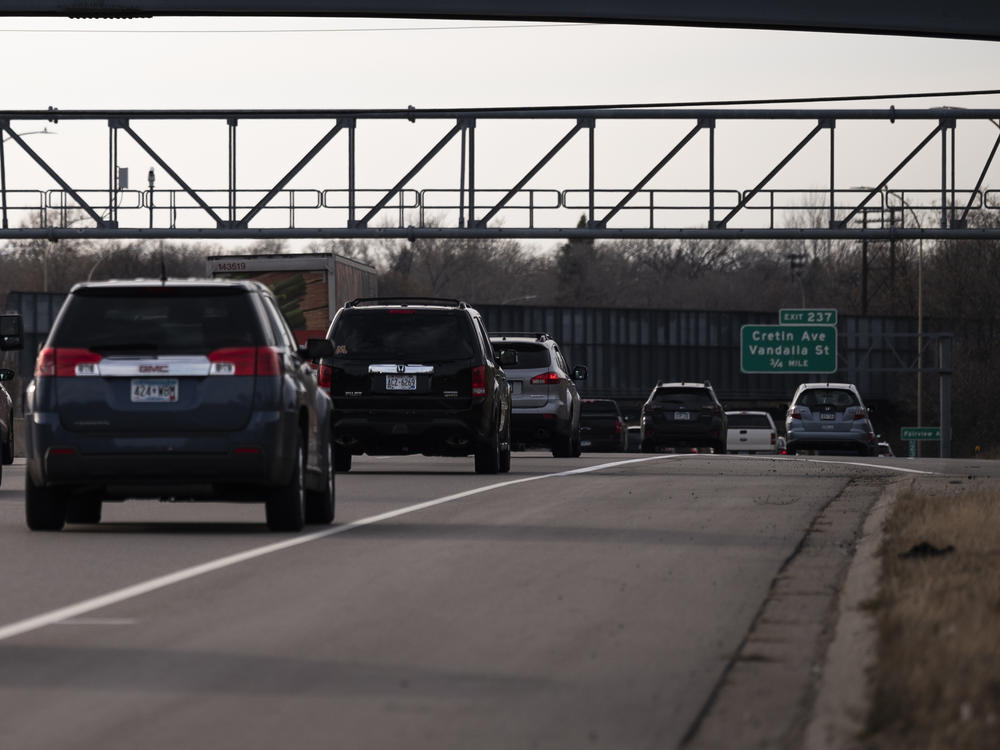Section Branding
Header Content
Pandemic Drastically Cut Emissions From Cars. The Lone Exception? SUVs
Primary Content
Last year, as pandemic lockdowns put travel on hold, wealthy countries reduced their environmentally-harmful emissions in almost every sector of their economies.
There was one exception ... one big, road-hogging, gas-guzzling exception.
According to a recent report from International Energy Agency, carbon emissions from SUVs increased by 0.5% in 2020, even though the world's energy-related emissions overall fell by 7%.
SUVs are less fuel efficient than smaller, lighter and more aerodynamic cars. They're also highly profitable for automakers and highly popular with consumers. The combined force of buyer preference and manufacturer incentives has led to a huge boom in the bigger vehicles — and sales stayed surprisingly strong in 2020.
The result? Rising emissions from SUVs. The increase in the number of SUVs on the road was so dramatic that — even though lockdowns caused the number of miles driven per vehicle, on average, to go down — the total consumption of oil by SUVs still went up, the IEA found.
This is not a new trend: SUV emissions have been growing for years. But the IEA found it remarkable that the growth managed to defy even the disruptions of the pandemic. And this steadfast increase in emissions has ominous implications for the climate, even as more automakers are promoting electric vehicles.
In fact, the IEA says in 2020 the decline in oil use thanks to electric vehicles "was completely cancelled out by the growth in SUV sales over the same period."
Well before the pandemic, some observers had been sounding the alarm that the boom in bigger vehicles was very bad news for climate efforts. In 2019, Greenpeace called the car industry "grotesque" for promoting ever-bigger vehicles despite their inefficiency.
But vehicle shoppers have flocked to SUVs and their smaller cousins, crossovers. And in most cases, it's not because they need to go off-road.
"Americans have a love affair with SUVs," says Jessica Caldwell, the executive director of insights at Edmunds. "They have a more commanding presence on the road than passenger cars and far more versatile, usable cargo areas. For drivers in congested cities, SUV ride height allows passengers a better view of the road which is a great bonus when sitting in traffic.
"But most notably, SUVs evoke the feeling of being able to go anywhere or do anything, and nothing resonates better with the American consumer than the promise of freedom," she says.
Vehicles overall have been growing more fuel-efficient. But the rise of SUVs undercuts that progress. Automakers have argued that the strong consumer appetite for larger SUVs and crossovers makes it impractical if not impossible to meet ambitious fleet-wide fuel economy standards.
Margo Oge, a former EPA official who worked on those fuel efficiency standards, says that to tackle the problem, the Biden administration needs to mandate more ambitious targets for SUVs, specifically, while looking toward a future without gas-powered vehicles at all.
"The Biden administration should set a target for all new light duty vehicle sales [to be] electric by 2035," she said. Some countries, as well as states like California, have already set such targets.
Sebastian Castellanos, a researcher at the New Urban Mobility Alliance, has studied SUV emissions and agrees that shifting toward electric SUVs is "a move in the right direction," but not sufficient on its own.
He argues it's also key for government policies to "move consumers towards more efficient, climate-friendly modes of transportation such as transit, walking and cycling, and away from use of private cars as the de facto way for people to move around."
Copyright 2021 NPR. To see more, visit https://www.npr.org.

